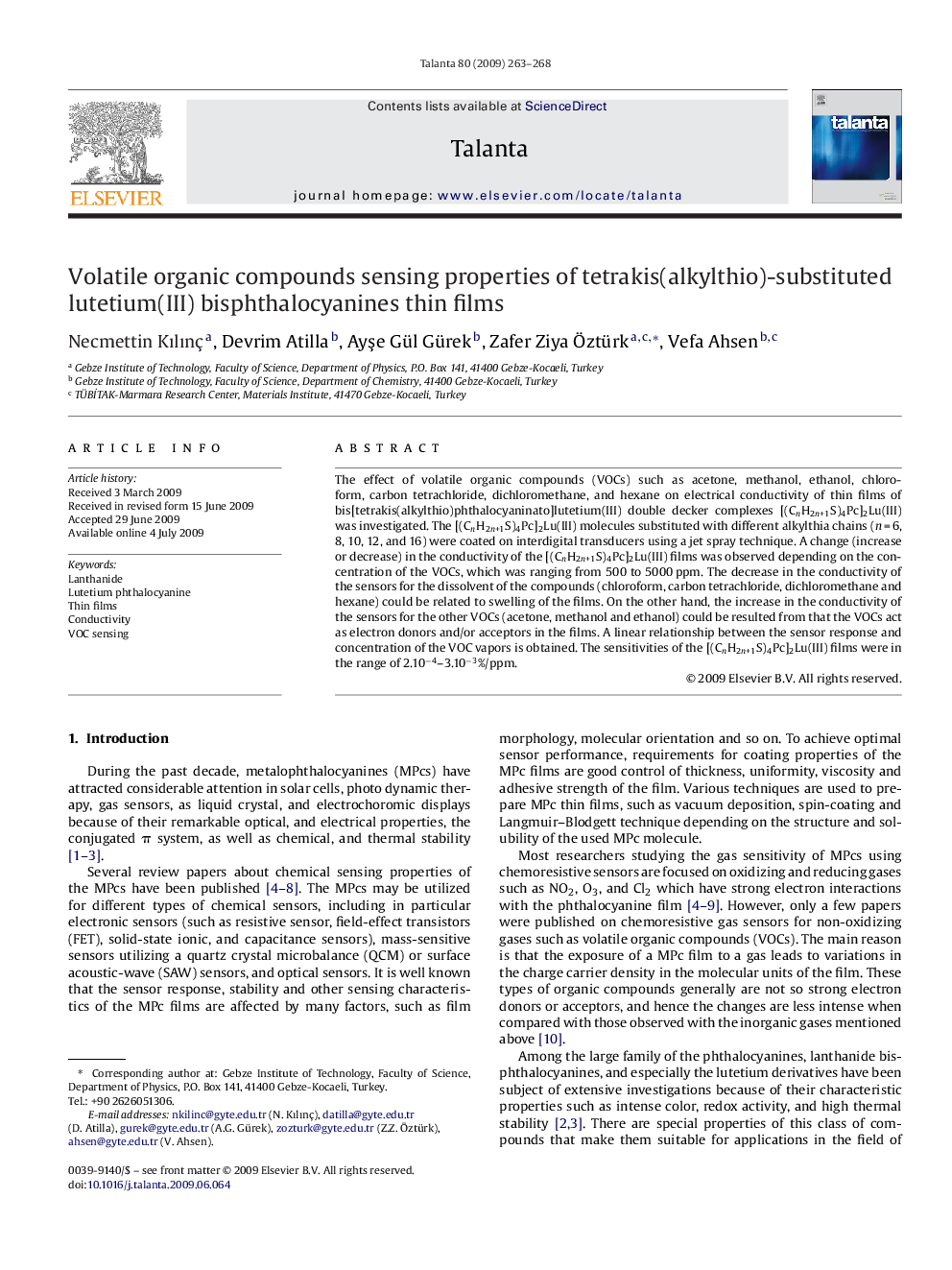| Article ID | Journal | Published Year | Pages | File Type |
|---|---|---|---|---|
| 1243677 | Talanta | 2009 | 6 Pages |
The effect of volatile organic compounds (VOCs) such as acetone, methanol, ethanol, chloroform, carbon tetrachloride, dichloromethane, and hexane on electrical conductivity of thin films of bis[tetrakis(alkylthio)phthalocyaninato]lutetium(III) double decker complexes [(CnH2n+1S)4Pc]2Lu(III) was investigated. The [(CnH2n+1S)4Pc]2Lu(III) molecules substituted with different alkylthia chains (n = 6, 8, 10, 12, and 16) were coated on interdigital transducers using a jet spray technique. A change (increase or decrease) in the conductivity of the [(CnH2n+1S)4Pc]2Lu(III) films was observed depending on the concentration of the VOCs, which was ranging from 500 to 5000 ppm. The decrease in the conductivity of the sensors for the dissolvent of the compounds (chloroform, carbon tetrachloride, dichloromethane and hexane) could be related to swelling of the films. On the other hand, the increase in the conductivity of the sensors for the other VOCs (acetone, methanol and ethanol) could be resulted from that the VOCs act as electron donors and/or acceptors in the films. A linear relationship between the sensor response and concentration of the VOC vapors is obtained. The sensitivities of the [(CnH2n+1S)4Pc]2Lu(III) films were in the range of 2.10−4–3.10−3%/ppm.
